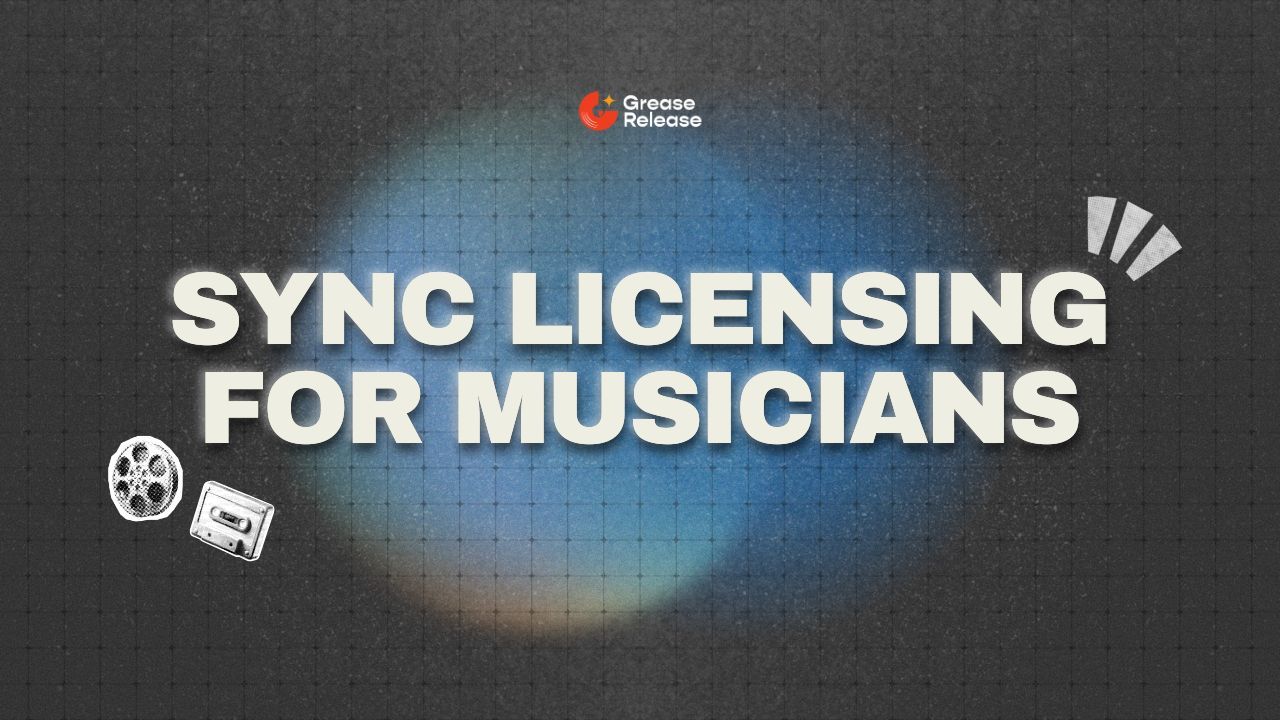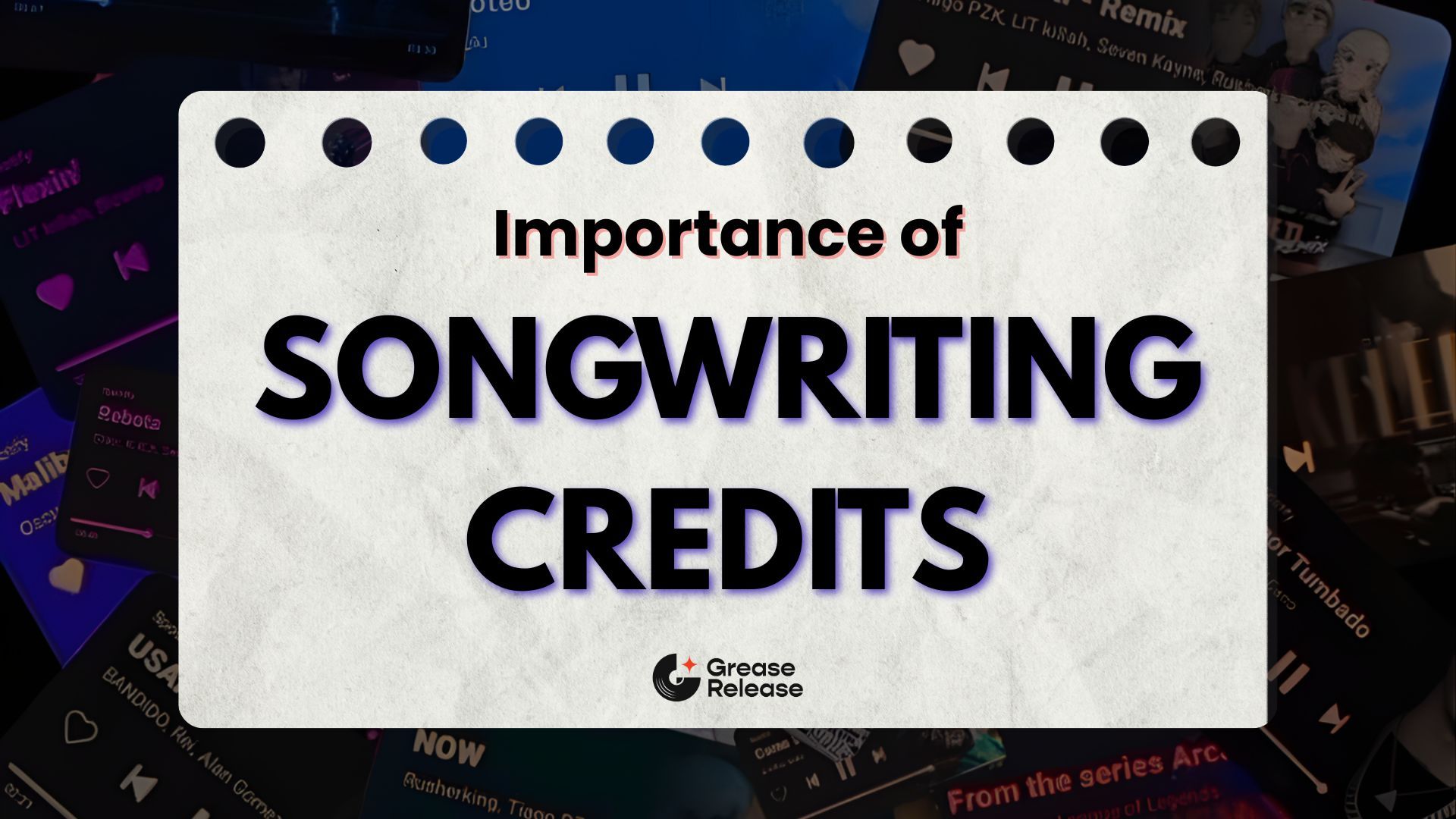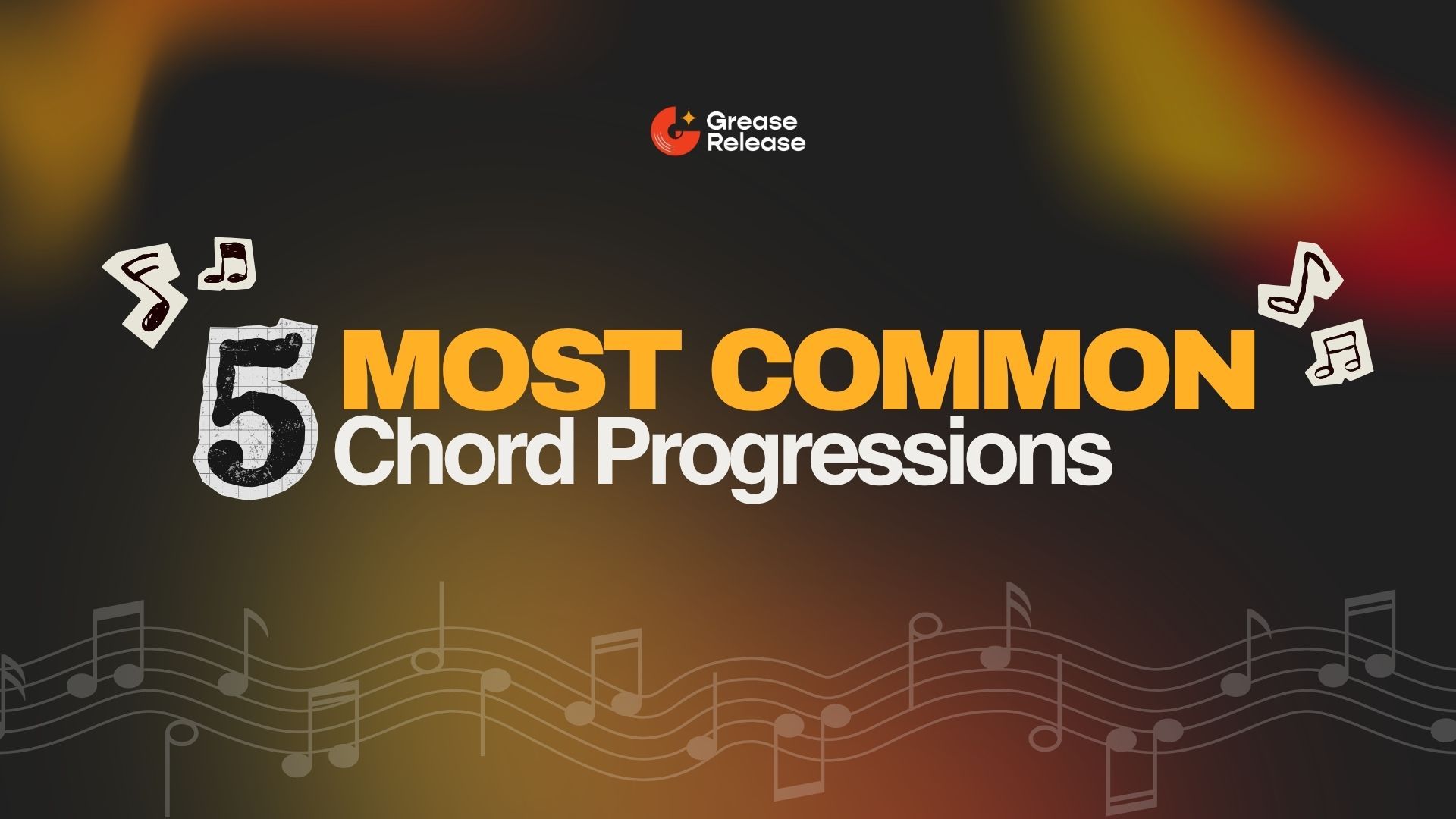
The Importance of Feedback for Your Music
Jul 12, 2024Why does your music need Feedback?
Why is teaching considered such a noble practice? It is probably because it involves imparting knowledge and there’s no better donation than giving education. Without the help of our teachers, mentors, and supervisors, without their feedback, it is safe to say that we’d probably still be struggling in school. Feedback becomes necessary in ANY and EVERY scenario, be it in your corporate office, academia, family, and so on. Music is no different. Feedback for your music is crucial to understanding your own limitations and working on them, so the ultimate benefit is yours.
Here are the questions we will be answering in this article:
What does feedback mean in music?
Feedback in music refers to the comments, recommendations, and new perspectives you receive from people about your work. It could be extremely insightful, especially when it comes from an expertise in the field. However, not everyone usually has access to such expert advice, so it could come from a variety of sources, including other artists, your contemporaries, music producers, music journalists, and even your fans. Feedback can address a variety of topics, including harmony, song lyrics, structure, quality of production, and overall musical effect.
Pssst…come here: While some people in the industry tend to focus more on technical knowledge when giving feedback, some others provide perspectives mainly stemming from a listener, such as “I don’t think it’s catchy enough.” It is important to remember to be open to all kinds of feedback, but be wise enough to understand which ones to pay attention to and which ones you can safely ignore because after all, music is subjective.
Why is feedback important in music?
As aforementioned, feedback plays a crucial role in improving your music and becoming a better musician overall. It grounds you and makes you look at the spots that could be worked on. Unless you are someone who is self-critical all the time (don’t be too harsh on yourself), you eventually need another pair of ears to notice something new you otherwise wouldn’t have caught on to. Here are some very solid reasons to make our argument stronger:
Identifying strengths and weaknesses
Feedback helps you realize what you’re doing well and where you may improve. For example, you could have an excellent voice yet struggle with songwriting. Constructive comments can emphasize your strengths and limitations, allowing you to focus on areas for improvement.
Pssst…come here: A common misconception about feedback is that it usually always points to the negative aspects of music or what is missing. While it does entail that, good feedback on your music should also mention what is working really well, basically the star of your music. Good musical feedback should strike a balance.

All the artists that have made a global audience, have gone through a rigorous amount of trial and error where feedback from fans, played a crucial role. Beyoncé is no different. She is well-known for her thorough attention to her fans’ input. She regularly integrates their suggestions into her live shows and musical releases. For example, after getting input on the audio quality during her On the Run Tour, she made major changes to provide an improved experience for her audience.
New perspectives
The best way to learn something every day is to look at the subjects you know from another lens. New perspectives help in understanding your own music differently. It is very natural for you, as a music artist to get very close to your music work. Of course, it is your brainchild, your baby. But this emotional connection could sometimes cloud your judgment and for this very reason, broadening your perspectives by asking other people to listen to your music and give feedback becomes elemental. It is actually very similar to how directors frequently display rough cuts to evaluate viewers’ reactions and make required changes. Sometimes these people release teasers and trailers 6 months before because they want to understand the opinions of the viewers and make necessary edits in the final film.
Did you know that Adele’s iconic Someone Like You was co-written with Dan Wilson (who helped Taylor Swift write her famous track Treacherous as well)? This collaboration on the songwriting end helped her understand a different perspective she could bring in her lyricism, something the song is known for today. Wilson’s feedback guided Adele to improve the song’s structure and lyrics, resulting in a deeper and emotionally resonant work.
Continuous learning
It is never too late to learn something new and feedback always helps you do that. Music is a constantly growing field, and feedback catalyzes continuous learning and adaptation. It helps in understanding what’s trending, commercial viability, redefining your musical vision, and so on. Feedback helps you pick up on a new skill, or maybe even try a totally different genre you thought didn’t suit your lyricism.
Take Taylor Swift, for instance. Taylor Swift received advice from numerous sources before transitioning from country to pop with her album 1989. Working with prominent producers such as Max Martin and Shellback provided her with important insight into how to create pop successes. She also pays great attention to fan responses and business reviews. This input helped her improve her sound and attitude, resulting in the tremendous success of 1989, which won the Grammy Award for Album of the Year and cemented her status as a pop superstar.
Where can you get feedback on your music?
Getting feedback on your music has become rather easy given how social media has made anything accessible to almost everyone. It is important to get feedback from the professionals working in the industry as well as from those who don’t and it could give you a listener’s perspective. But where can you get feedback on your music?
Submission platforms
Spotify playlisting has become huge over the years, enhancing the artist’s reach to different listeners through playlists. Independent playlist curators run popular playlists on the streaming app. You could submit your music to these curators to get feedback on your music! You will have to pay a small fee to submit your music on a few platforms while others are free music submission platforms.

We have such a submission platform as well! We made things very simple for musicians like you, here at GreaseRelease. The advantage of our submission site is that it is a simple 1-click submission platform, and all artists need to do is fill out a very basic form. The submission process has no third-party activity, it directly goes to all the curators we have in our network. Once you submit a track, one of our curators may love it and add it to one of their playlists, or none of them may find it a good fit and send you well-organized honest, thorough constructive feedback within 7 days of your submission.
Online Platforms
Websites and forums like SoundCloud, and Reddit, enable artists to share their music and receive comments from a large audience. SoundCloud is a popular website for independent musicians like you to share and distribute their music. The platform’s comment function enables listeners to provide direct input on specific parts of the track. This real-time connection assists artists in determining which elements of their song resonate most with listeners and where modifications may be required.
Reddit offers multiple subreddits for music and feedback. Subreddits such as r/WeAreTheMusicMakers, r/MusicCritique, and r/ThisIsOurMusic provide opportunities for musicians to share their work and receive thorough feedback from a varied audience. Reddit members are recognized for their honesty, and while the feedback can be harsh at times, it is often quite perceptive. The anonymity of Reddit allows for open feedback, which can help artists make substantial improvements.
Social media
Instagram, Meta, and Twitter are wonderful platforms for sharing music excerpts and receiving comments from fans. Many artists use these channels to connect with their audiences and gain useful feedback. To get feedback, however, you should make sure that you engage with your followers frequently.
Pssst…come here: You could also do a lot of local gigs and shows and talk to the attendees after the show to get real-time feedback. Ed Sheeran’s journey to stardom was heavily impacted by the criticism he received when performing in small venues and posting his music online. Sheeran used to perform wherever he could, from bars to busking on the streets, always looking for input from his fans to improve his skill.
How do I get into reviewing music?
You could get into doing this as a professional by becoming a music journalist or an independent curator. However, there are some necessary skills you’d need to develop.
An Ear for Music
Familiarize yourself with different music genres to better comprehend their distinct traits and customs. This can include listening to iconic albums and songs from each genre, researching their history, and comprehending their cultural settings. Understanding how music is made might help you evaluate the technical components of a song. This comprises a basic knowledge of mixing, mastering, recording procedures, and the application of various instruments and effects.
Practice: Start Small
Use Instagram, TikTok, and Twitter to post brief music reviews and recommendations. Engaging with followers and other music aficionados can help you grow your audience and obtain feedback on your evaluations. Once you improve with practice, create a blog for music reviews. Write extensive reviews of current releases, gigs, and even classic albums. Publish your posts on social media to draw in readers and grow your following.

Build credibility
This means one thing: Internships. Intern at other music blogging companies, or any publishing organization that writes music reviews. Newspaper organizations, magazines, and so on could be a great place to get an internship. If a curator is someone you’d like to be to give feedback to artists, then grow your own playlists on Spotify to get a better understanding of how the playlisting ecosystem works. Collaborate with other curators, learn from their experiences, and try to get an internship with them as well.
Compile your greatest reviews into a portfolio that demonstrates your writing style, analytical skills, and musical expertise. This portfolio may be shared with potential partners and industry professionals. Maintain a professional attitude throughout your reviews. Even when expressing criticism, maintain a respectful and constructive tone. This increases trust and confidence among musicians and your audience. Attend music business events, concerts, and conferences to meet fellow reviewers, performers, and industry experts. Building relationships can lead to collaborative opportunities and insights.
How do I differentiate between constructive criticism and criticism?
Constructive criticism contains a detailed explanation of sections of the music that could use improvement along with a hint of a suggestion or basically, what could be done. This form of critique is specific, actionable, and presented with a good intention. For example, noting, “The chorus could be more impactful if you add a harmony,” is helpful.
On the other hand, criticism is a type of feedback that is straightforward and points out what is wrong. It could come off as extremely offensive as well as blunt. It can demoralize the artist without providing a path for growth. For example, saying, “Your vocals suck,” with no further explanation, is simply criticism.
Pssst…come here: Let’s not forget the famous singing shows, The Voice and American Idol. Judges provide participants with constructive feedback, highlighting particular areas for growth while also recognizing their merits. This strategy enables contestants to develop and enhance their skills.
Feedback is essential in the music-making process because it allows musicians to improve their craft, uncover new perspectives, and reach their maximum potential. By constantly seeking and providing constructive feedback, musicians can continue to improve and prosper in the ever-changing music industry.
We at GreaseRelease, have a bunch of curators on our network who are looking for new & exciting music to push on their massive playlists. If you make music and want to reach a wider audience, check out our submission platform and get a chance to reach millions of listeners! Submit your tracks now!
Studies show that 80% of musicians constantly feel overwhelmed and we want to take that load off by helping you stay organized that's why, my team and I created the ProdPro 2.0
The ProdPro 2.0 is the ultimate organization tool built by and for musicians. Click here to learn more.
Don't miss my newsletter!
Join me on a music entrepreneurship journey with new tips and tricks delivered straight to your inbox.
We hate SPAM. We will never sell your information, for any reason.




